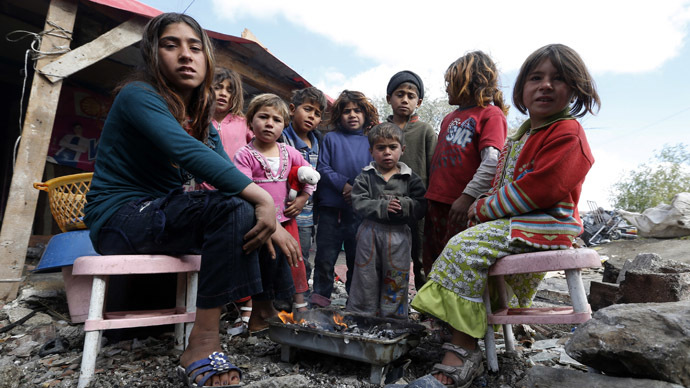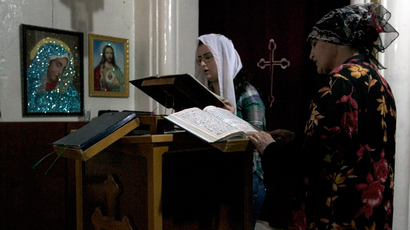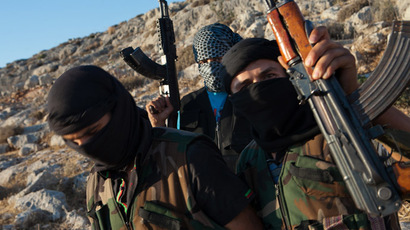Syrian government 'excluded region' from Polio vaccine drive

A remote Syrian region was excluded from a WHO polio inoculation campaign in 2012 with the result that 17 children are now infected with the incurable disease, a new journalistic investigation claims.
The rebel held region of Deir al-Zor was largely excluded in a 2012 Syrian government vaccination campaign, which argued that most of the residents had fled when in fact they were still there, an investigation by Reuters has found.
In November the World Health Organization (WHO) announced they had discovered 13 cases of polio in the region, with another two surfacing more recently and the virus also spreading to Aleppo and Damascus.
This is the first outbreak of the deadly contagious disease in Syria since 1999, where a bloody civil war has raged for almost three years. Nearly all children were vaccinated against the disease before the Syrian civil war began in March 2011.
Polio can paralyze a child within hours and is highly infectious and incurable. The only way to stop it spreading is to inoculate children against it. Although it’s been wiped out in many parts of the world it’s still rife in Afghanistan, Pakistan and Nigeria.
The WHO said in a statement on December 6 2012 that it was launching a campaign in Syria together with the Syrian Ministry of Health and the United Nations Children’s Fund in order to vaccinate all children under the age of 5 against polio.
But the campaign, involving 4,000 health workers and volunteers, while inoculating 2.5 million children would cover 13 of Syria’s 14 governorates but not Deis al-Zor as the majority of its inhabitants had allegedly fled.
Deis al-Zor is a region of 1.2 million people in the east of Syria near Iraq with almost 600,000 children under 15 in 2012.
While international agencies such as the WHO step in to support vaccination campaigns and fill the gaps left by disasters which prevent routine vaccinations, it is still the Syrian government which decides in which areas they will carry out the work.
Chris Maher who is conducting the regional polio response for the WHO in the Middle East said that aid groups could have raised the alarm earlier and prepared better; although he acknowledged that in a complex emergency setting, it was “not easy to continue routine campaigns,” he told Reuters.
But while there were gaps, 67,000 children under five years old were vaccinated in Deir al-Zor in January 2013. This gives a coverage rate of 50 percent, which is insufficient to stop the disease from spreading. And because of the nature of the war in Syria, the actual population levels are hard to determine.
The city of Deair al-Zor is partially controlled by Syrian government forces while the surrounding countryside is in rebel hands, but it is not clear why the government decided to stop routine vaccinations in this state alone.
“I have no information that that particular area was higher risk than anywhere else given the general deterioration of immunization rates during the conflict. There are unimmunized kids all over Syria,” said Maher.
He added that immunization levels have dropped from 90 percent in 2010 to 70 percent in 2012.
His thoughts were echoed by a Lebanon based public health researcher, Adam Coutts, who said proper vaccination campaigns in Syria broke down two years ago.
“With the breakdown of the health system, sanitation and nutrition, the exclusion of Deir al-Zor from the vaccination campaign provided ideal conditions for an outbreak to occur,” he said.
“Questions remain as to why the WHO did not better prepare for this,” he added.
The WHO says it is carrying out its largest ever immunization campaign in the Middle East, which will aim to vaccinate more than 23 million children with 2.2 million of them in Syria and that they have already vaccinated 2 million children including 600,000 of them in contested areas.














